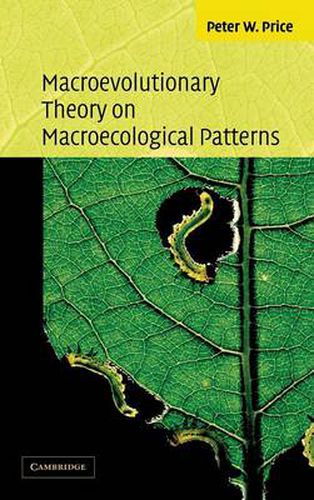Readings Newsletter
Become a Readings Member to make your shopping experience even easier.
Sign in or sign up for free!
You’re not far away from qualifying for FREE standard shipping within Australia
You’ve qualified for FREE standard shipping within Australia
The cart is loading…






In Macroevolutionary Theory on Macroecological Patterns, Peter Price establishes a completely new vision of the central themes in ecology. For the first time in book form, the study of distribution, abundance, and population size variation in animals is cast in an evolutionary framework. The book argues that evolved characters of organisms such as morphology, behavior, and life history influence strongly their ecological relationships, including the way that populations fluctuate through time and space. The central ideas in the book are supported by data gathered from over 20 years of research, primarily into plant and herbivore interactions, concentrating on insects. The huge diversity of insect herbivores provides the immense comparative power necessary for a strong evolutionary study of ecological principles. The book is intended as essential reading for all researchers and students of ecology, evolutionary biology, and behavior, and for entomologists working in agriculture, horticulture, and forestry.
$9.00 standard shipping within Australia
FREE standard shipping within Australia for orders over $100.00
Express & International shipping calculated at checkout
In Macroevolutionary Theory on Macroecological Patterns, Peter Price establishes a completely new vision of the central themes in ecology. For the first time in book form, the study of distribution, abundance, and population size variation in animals is cast in an evolutionary framework. The book argues that evolved characters of organisms such as morphology, behavior, and life history influence strongly their ecological relationships, including the way that populations fluctuate through time and space. The central ideas in the book are supported by data gathered from over 20 years of research, primarily into plant and herbivore interactions, concentrating on insects. The huge diversity of insect herbivores provides the immense comparative power necessary for a strong evolutionary study of ecological principles. The book is intended as essential reading for all researchers and students of ecology, evolutionary biology, and behavior, and for entomologists working in agriculture, horticulture, and forestry.